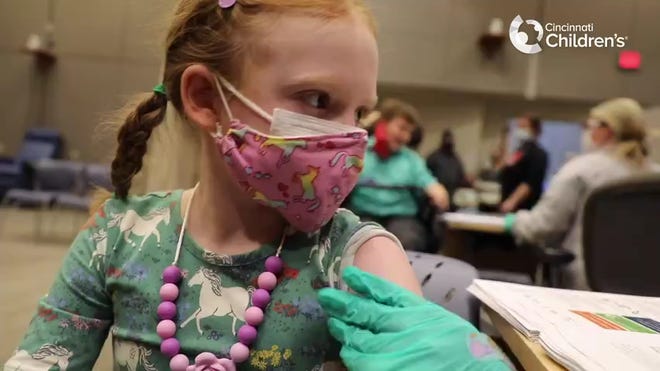

With the arrival of fall and another round of seasonal allergies, doctors are again warning about confusing an allergic reaction with a COVID-19 infection.Dr. Casey Mabry, with Ascension St. Agnes Health in Maryland, said irritating allergy symptoms may linger, but the causes behind them -- summer vs. fall -- differ."It's hard to prevent allergies, but you can definitely limit your exposure," Mabry said. "Spring and summer allergies tend to be grass and flowers while the trees are blooming. The fall is a little bit different. It tends to be dust and mold."Now, add to the mix COVID-19 with symptoms like coughing, congestion and feeling generally under the weather all crossing over.But there's one key difference."Allergies will never cause a fever. If you have a fever, you can't blame that on your allergies. Please get COVID tested," Mabry said.Mabry said another way to tell is to be honest with yourself: Are the symptoms you're experiencing something you've seen before or something new?"If you have brand new allergies this year, it's probably not allergies. If you, all of a sudden, are getting congestion and sore throat, and you're not feeling well in the fall, but you've never had that before, maybe get tested," Mabry said.Also, keep in mind that itchiness often goes with allergies, just as a loss of taste or smell goes with COVID-19."It's tricky because we're not seeing as much loss of smell with the delta variant, but still, definitely if you lose your sense of smell, it's definitely much more concerning," Mabry said.Mabry said to stay hydrated and wear face masks to stop the spread of COVID-19. Also, be sure to wash the masks to prevent more allergies this fall.Watch the video above for the full story.
With the arrival of fall and another round of seasonal allergies, doctors are again warning about confusing an allergic reaction with a COVID-19 infection.
Dr. Casey Mabry, with Ascension St. Agnes Health in Maryland, said irritating allergy symptoms may linger, but the causes behind them -- summer vs. fall -- differ.
"It's hard to prevent allergies, but you can definitely limit your exposure," Mabry said. "Spring and summer allergies tend to be grass and flowers while the trees are blooming. The fall is a little bit different. It tends to be dust and mold."
Now, add to the mix COVID-19 with symptoms like coughing, congestion and feeling generally under the weather all crossing over.
But there's one key difference.
"Allergies will never cause a fever. If you have a fever, you can't blame that on your allergies. Please get COVID tested," Mabry said.
Mabry said another way to tell is to be honest with yourself: Are the symptoms you're experiencing something you've seen before or something new?
"If you have brand new allergies this year, it's probably not allergies. If you, all of a sudden, are getting congestion and sore throat, and you're not feeling well in the fall, but you've never had that before, maybe get tested," Mabry said.
Also, keep in mind that itchiness often goes with allergies, just as a loss of taste or smell goes with COVID-19.
"It's tricky because we're not seeing as much loss of smell with the delta variant, but still, definitely if you lose your sense of smell, it's definitely much more concerning," Mabry said.
Mabry said to stay hydrated and wear face masks to stop the spread of COVID-19. Also, be sure to wash the masks to prevent more allergies this fall.
Watch the video above for the full story.
Source link







